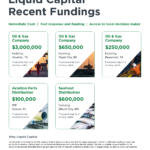Turn your sales team into relationship-building rockstars!
Give your sales team a winning advantage by boosting their relationship-building skills in the Relationship Economy.

Not long ago, things like price, convenience and savings would drive customer preferences. But as we’ve moved towards the Relationship Economy, consumers are increasingly prioritizing customer service, brand loyalty and personalization.
“In a Relationship Economy, the primary currency is made up of the connections and trust among customers, employees, and vendors who create significantly more value in what we sell. These relationships and connections help make price irrelevant.”
Understanding the relationship economy
In today’s world, consumers are inundated with choices. In the relationship economy, consumers narrow their options by considering which business cares about them as a customer—and which businesses will deliver the best experience. Customers may also choose to do business with companies and brands that most closely align with their personal values, as they are increasingly prioritizing customer service, brand loyalty and personalization.
86% of customers believe that their experience is just as important as the actual product or service they purchase. — PWC
As a result, the relationship economy is the idea that today’s consumer prioritizes personalization, rapport, brand loyalty and customer experience over factors such as price, discounts or savings.
And thanks to things like increased connectivity through social media and improved customer data, the shift from the consumer economy to the relationship economy has only accelerated. Companies that have a system to tailor and personalize their customer experiences are more likely to win customers and retain their business.

This also means that sales prospecting needs to consider things like rapport, loyalty and relationships to build trust and credibility with their customers. Sales reps need to know how to prospect with these values in mind so they can build relationships and rapport with potential clients.
Beyond happy customers, positive customer relationships can create ripple effect benefits, including improved cash flow, business growth, and overall brand trust and credibility.













